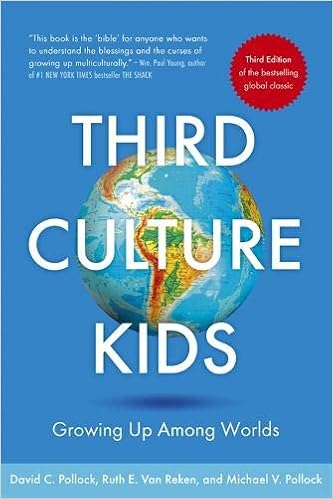They say that 20/20 is perfect vision. But what is your 20/20 for the new year? It’s hard to believe that it is 2020 already! Have you given any thought to what’s ahead in this new year? Do you ask God each year for a “word” or key “phrase” for the year? Do you have a list of resolutions? Whatever your approach to starting a new year, we would all like to have 20/20 vision for what’s ahead – oh, to see clearly!

If only God would share complete insights about what is ahead or give us a full road-map to success for the year … Perhaps He has given you a glimpse by offering you a ‘word’ or ‘phrase’ to follow for the coming year. Perhaps He has even shown you some of what’s in store. Perhaps you even know some concrete ways He wants to use you. But if you are like me, you still want to know more, thorough details of what’s ahead.
You see, I can be impatient. I can be near-sighted. I can get distracted. I like to follow clear check-lists and how-to’s, all based on my goals and objectives. I can allow myself to get frustrated when these things are not clearly outlined before me. During these times, I have been known to even abandon those things that I already know to do – at least for a time. You see, if I allow myself to get overwhelmed or stressed out, I just want to stop for awhile. Take a break. I get stuck!

The only way for me to get started again is to focus. Yes, focus! If I had not taken my focus off what was the aim was, I wouldn’t have lost my focus to begin with. Sounds a bit backwards, but it’s true. I bet you can guess where my focus should lie … and remain! Yes, I must focus on Him, the One who has made all things new. Focusing on Him makes things come back into view clearly. I may not know all of the answers to the questions flinging around in my mind, but when I focus on Him, I don’t need to. I can see what I need to see for that moment.
When I forget to focus on “Him,” and instead focus on my to do list or goals, that is actually when I get overwhelmed and stressed out. It makes sense, but it often creeps up on me. I am having great quiet times with Him and remembering to speak with Him throughout the day. I am playing praise and worship music regularly. I am doing all of the things that help me keep my focus. But if I allow myself to break my routine, my habits, that is when my focus begins to wane. They say it takes 21 times of repetition to make a new habit, but 1 time of missing that repetition to break that habit. Oftentimes, one must start over multiple times before the new habit is formed. I have found so much truth in this in my own life.
It is good to remind myself that to focus on Him is to have 20/20 vision. While it doesn’t necessarily mean I have all of the answers, I do know what to do next. I just need to do the next thing that He has revealed to me, the thing that He has given light to. I need to be faithful to follow what He has revealed to me. I don’t need to worry over what I cannot see ahead. I just need to take the next step that He shows me, just one step at a time, and keep focusing on Him.
What next step has He revealed to you? What light has He given to you? Is he asking you to draw close to Him, to focus more fully on Him? Perhaps this is the one and only resolution that each of us needs to make as followers of Him – to focus on Him. If your habit of time with Him or habits of how you continually connect with Him has been waning, perhaps there is only one real resolution. Rebuild that habit that connects you back with Him. Yes, focus. Focus until you see clearly just the next thing that He has shown you. Focus and have 20/20 vision for 2020. Pick up the challenge!




























Subscribe To Our Newsletter
Join our mailing list to receive the latest news and updates, including notices of new blog posts.
You have Successfully Subscribed!